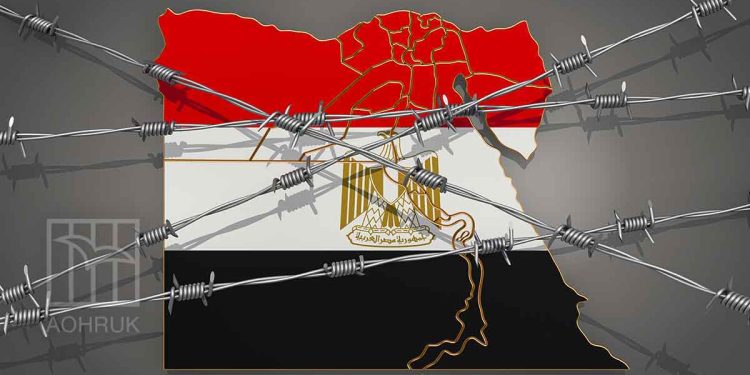Relatives of several Egyptian detainees and human rights groups have complained of multiple abuses at recently opened prison, which the Egyptian regime has described as a model institution, and which holds a number of prominent prisoners.
Inmates are being denied proper health care and are arbitrarily subjected to various punitive measures, the families report.
According to a Reuters report many of those detained in Badr 3, on the outskirts of Cairo, were transferred from Tora prison, also in Cairo.
Tora is widely recognised as having been used for holding political detainees.
Abdel Moneim Aboul Fotouh, the former presidential candidate who was arrested in 2018, was amongst those transferred from Tora to Badr.
His son, Hozaifa Aboul Fotouh, told Reuters that “[Badr] was supposed to be at least on the same level [as Tora] but since the transfer, no, it’s much harder, the situation is worse and there’s no justification.”
Hozaifa told reporters that his 71-year-old father spent 12 days in the same clothes whilst held in Badr, and that he not been provided with proper bedding.
Many of those relatives Reuters spoke with reported that it was difficult for them to obtain information on conditions inside the prison, since detainees are permitted much less communication with the outside world than at other institutions.
In 2022 alone four prisoners died in Badr due to medical negligence, including Alaa Al-Salami, 47-years-old, following two months’ of hunger strike in protest against prison conditions.
“In two cases prisoners in urgent need of healthcare were left for hours without treatment as inmates banged on walls or doors to get attention”, Reuter’s reports.
One of the detainee’s mothers, whose son was arrested on alleged terrorism charges in 2017 and who transferred from Tora to Badr in June 2022, stated that the last time she saw him was in 2019, as he was being transported to a court appearance.
“We have no information at all, we don’t visit them, we don’t see them, we don’t know anything about them, there are no letters or phone calls”, she is reported as saying.
Other relatives have reported that cells are constantly lit, and that cameras monitor detainees around the clock.
According to the Reuters report, “a handwritten note smuggled out by Badr 3 prisoners, seen by Reuters, said those who protest against conditions had clothes and blankets removed or were sent into cramped confinement with only a piece of bread and small lump of cheese to eat per day.”






























